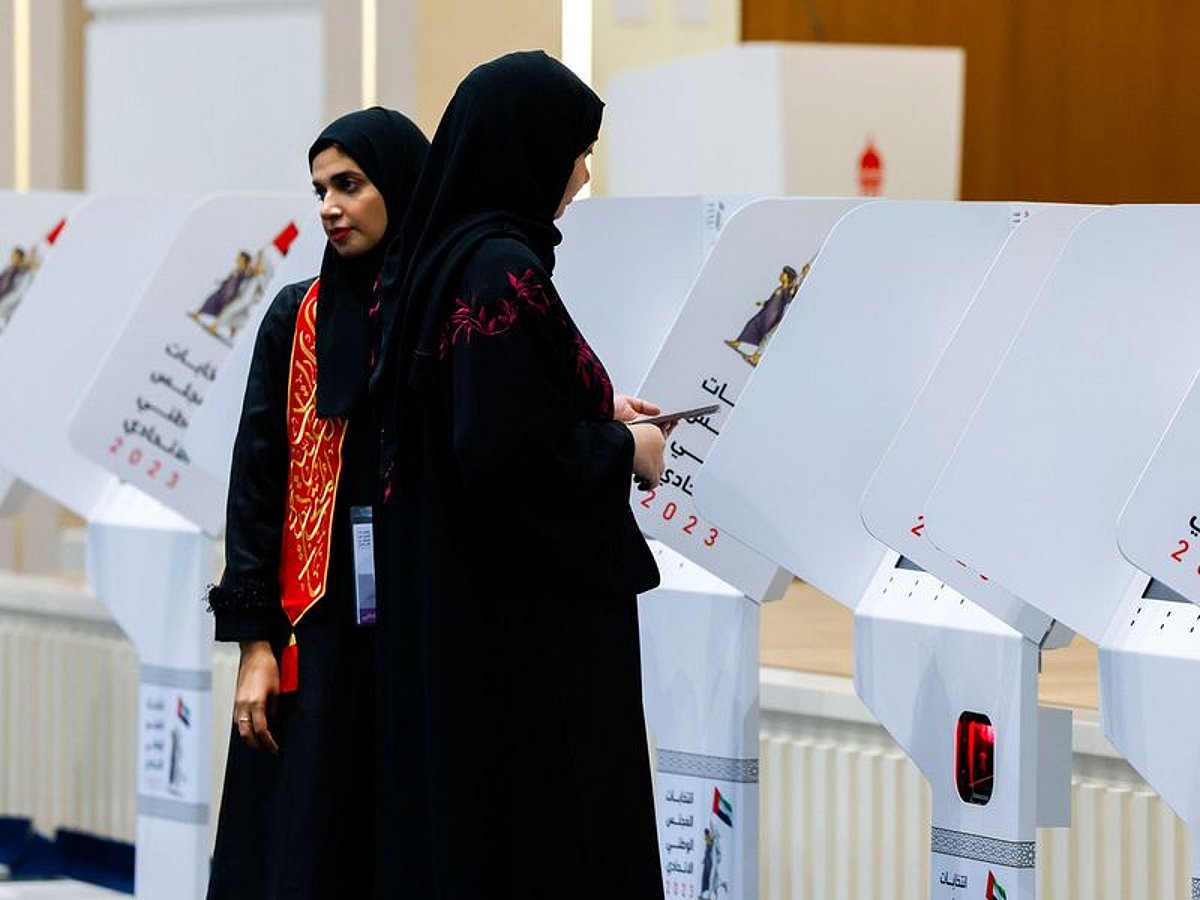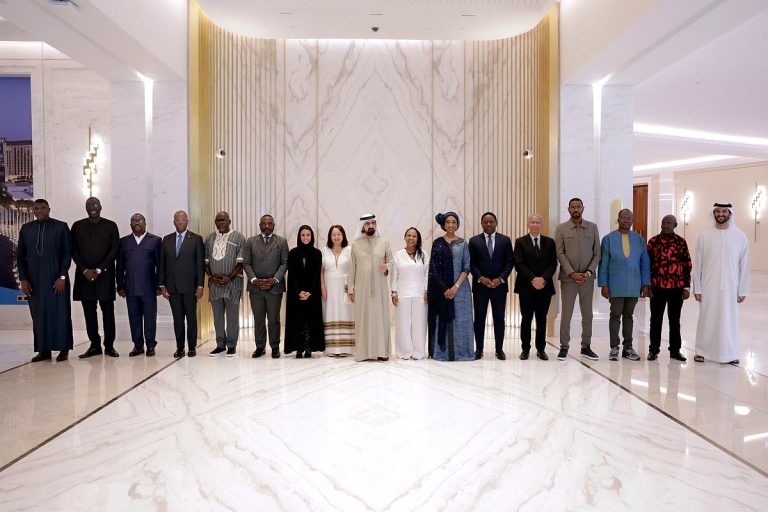UAE Launches AI Policy for National Elections Transparency
The United Arab Emirates has made a significant advancement in technology governance by unveiling a pioneering policy that regulates the use of artificial intelligence in national elections. This initiative aims to ensure ethical practices and transparency in the electoral process, positioning the UAE as a leader in responsible AI deployment.
Overview of the AI Election Policy
Omar Sultan Al Olama, the Minister of State for Artificial Intelligence, Digital Economy, and Remote Work Applications, announced the new framework known as the National Elections Committee Policy on the Use of Artificial Intelligence. This policy was developed in collaboration with the Federal National Council (FNC) and the Ministry of State for Federal National Council Affairs.
The policy mandates that all candidates in the upcoming Federal National Council elections disclose any AI tools utilized in their campaigns. This requirement is designed to promote transparency, prevent manipulation, and uphold the integrity of the democratic process.
Balancing Innovation and Responsibility
Al Olama emphasized that this policy is the first of its kind globally. He noted that while AI can enhance a candidate’s outreach, it also poses risks of misuse that could unfairly influence voters. The UAE’s approach aims to balance innovation with responsibility, ensuring that all AI applications in political campaigns are declared, reviewed, and monitored.
“This policy reflects our proactive stance in legislating and managing emerging technologies,” Al Olama stated. He highlighted the National Charter for the Development and Use of Artificial Intelligence, which serves as a guiding reference for AI implementation across various sectors. The charter aims to foster innovation while adhering to ethical standards.
Learning from Global Models
In discussing the global landscape of AI regulation, Al Olama pointed out that the European Union’s stringent regulations have sometimes hindered innovation, whereas the United States’ more flexible guidelines have encouraged rapid technological advancement. The UAE seeks to adopt a balanced approach that combines proactive legislation with continuous innovation.
He noted that the UAE was among the first nations to appoint AI as an advisor to the Cabinet, utilizing real-time data analysis to inform critical economic and social decisions. This forward-thinking strategy underscores the UAE’s commitment to leveraging technology for the benefit of society.
AI in Legislative Processes
The UAE has also launched the world’s first integrated smart legislative system powered by AI. This system is designed to modernize the processes of studying, drafting, and evaluating laws. Al Olama explained that AI can assist in analyzing technical details and assessing the economic and social impacts of legislation, thereby enhancing the policymaking process.
“The goal is not to replace human legislators but to empower them with data-driven insights,” he added. The UAE’s model of AI governance has been showcased at international forums, reinforcing its commitment to ethical innovation.
Economic Implications of AI Regulation
On the economic front, Al Olama discussed the UAE’s efforts to create advanced laws governing AI use in the financial sector, particularly in Abu Dhabi and Dubai’s financial free zones. He stressed the importance of maintaining a flexible legal framework that encourages innovation while preserving public trust.
The UAE’s “legislative laboratories” allow companies to test new laws in controlled environments before broader implementation. This approach enables policymakers to assess the social, economic, and governmental impacts of AI regulations.
Addressing AI in Media and Content Creation
Al Olama also announced that the UAE is developing guidelines for AI use in journalism and digital content creation. This initiative is particularly relevant in an era marked by misinformation and the rise of deepfakes. He raised concerns about the authenticity of online content, emphasizing the need for regulations that ensure responsible AI use in media without stifling creativity.
He warned that without such regulations, the spread of fake content and privacy violations could become significant challenges. With 81 percent of journalists reportedly using AI in their work, the need for formal policies is increasingly urgent.
The Challenge of Privacy Protection
Privacy protection is a top legislative priority for the UAE, given AI’s capacity to analyze personal data with remarkable precision. Al Olama described the current moment as a critical juncture in AI’s evolution, where rapid global adoption necessitates clear and adaptive laws to ensure safe and responsible use.
“The greatest challenge today is finding the right balance to ensure AI is used effectively without being misused,” he remarked. Global statistics indicate that 88 percent of workers engage with AI in some capacity, and the World Economic Forum projects that AI could create over 69 million new jobs and generate more than $407 billion in economic value by 2027.
A Collective Responsibility
In conclusion, Al Olama stressed that governance of AI is a shared responsibility. He asserted that regulating AI should not fall solely on governments but should involve collaboration among government, society, individuals, and the private sector. This collective effort is essential to sustain innovation, open new markets, and minimize risks.
“Our goal is to ensure AI remains a force for good,” he concluded, highlighting the UAE’s commitment to responsible and ethical AI governance.
FAQs
What is the purpose of the UAE’s AI election policy?
The policy aims to ensure transparency and integrity in national elections by requiring candidates to declare any AI tools used in their campaigns.
How does the UAE’s approach to AI regulation differ from other regions?
The UAE seeks a balanced approach, combining proactive legislation with continuous innovation, unlike the EU’s stringent regulations or the US’s more flexible guidelines.
What are the implications of AI in journalism according to the UAE’s new guidelines?
The guidelines aim to ensure responsible AI use in media, addressing concerns about misinformation and the authenticity of content while promoting creativity.
Conclusion
The UAE’s introduction of a comprehensive AI policy for national elections marks a significant step in ethical technology governance. By prioritizing transparency and responsibility, the UAE aims to set a global standard for AI regulation while fostering innovation across various sectors. As the nation continues to navigate the complexities of AI, collaboration among all stakeholders will be crucial for ensuring its positive impact on society.
Also Read:
Dubai RTA Launches New Projects for Traffic Management







